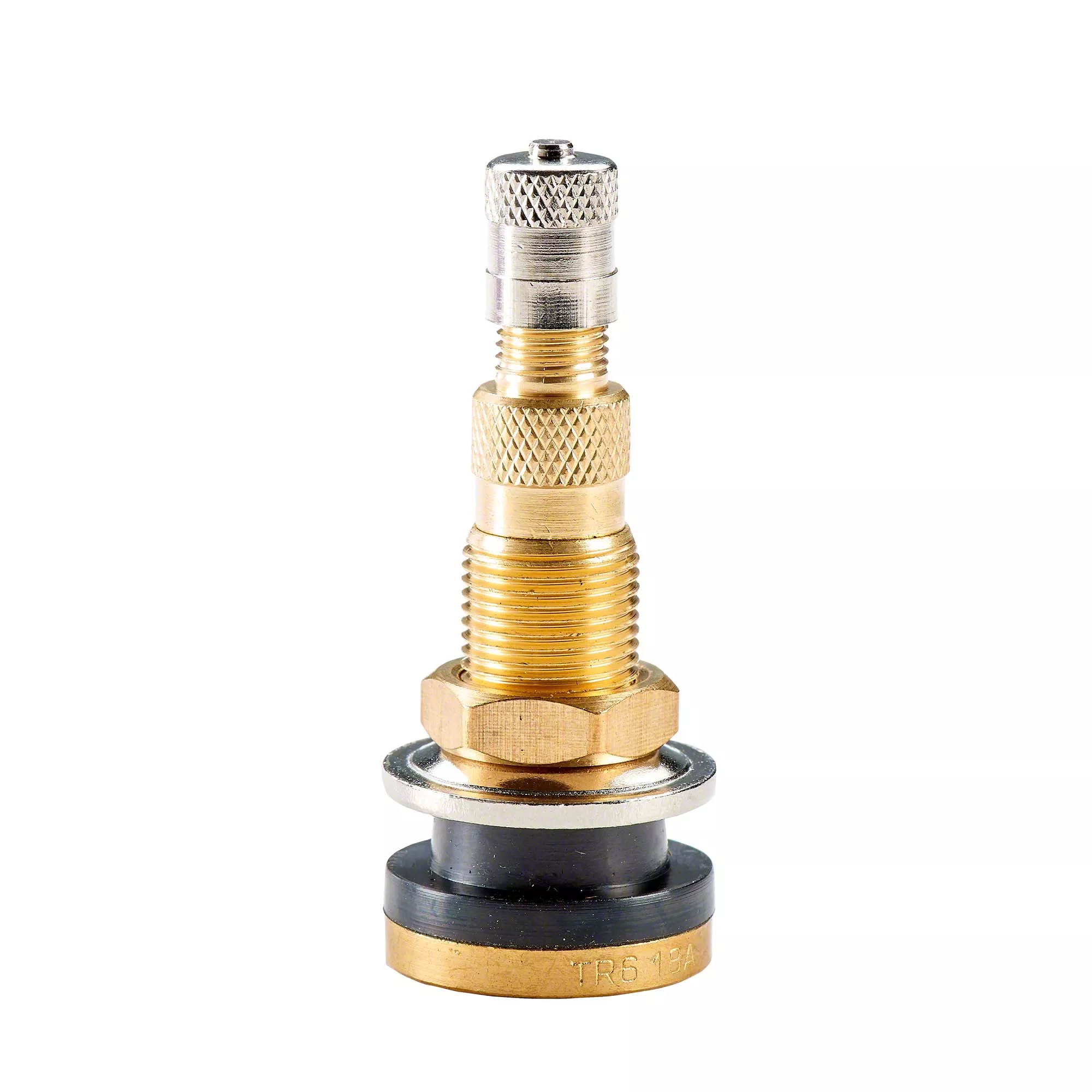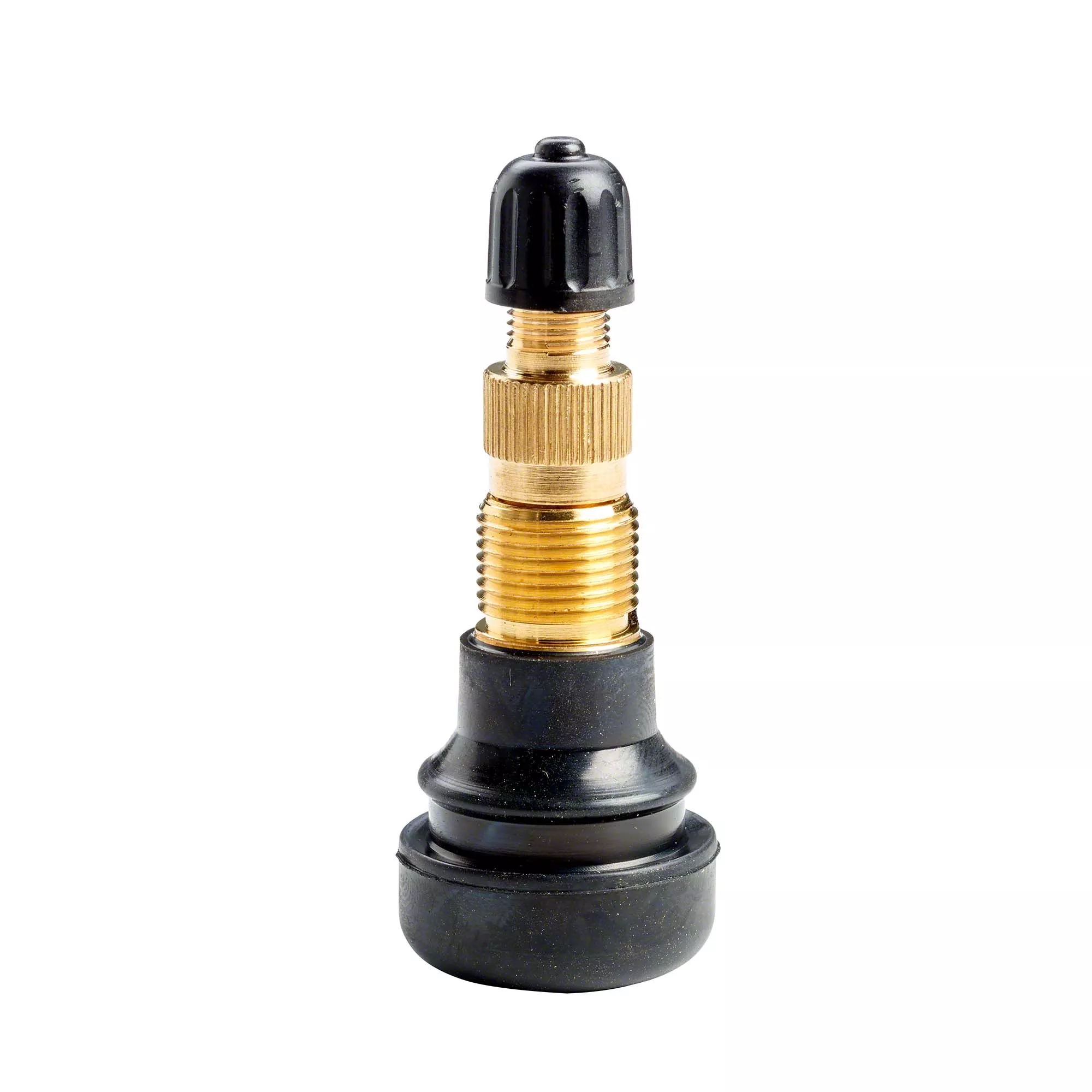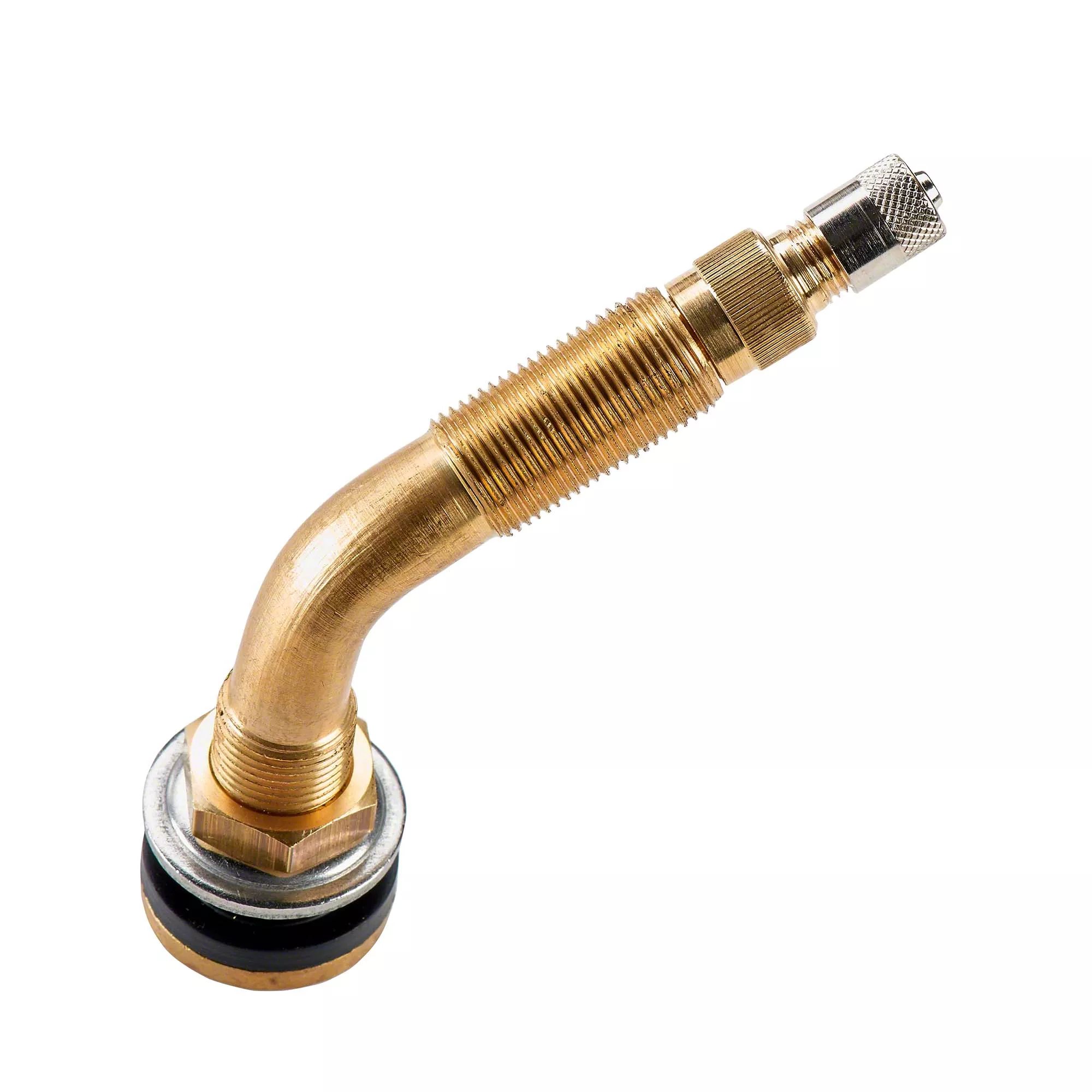Agricultural valves
Filter
–
Valve - clamp-in, TR618A, V5.01.1, assembled, tractor
Article number: 0401-5143-001
Rims Valve TR618A: Variant: Mounts ETRTO: V5.01.1 Valve height in mm: 50.5 Ø valve hole in mm: 15.7 packaging units: 10-piece tightening torque: 5-8.5 NmWhen should metal tyre valves be changed? The best thing is to change the tyres every time!The metal valves are subjected to enormous stress during their service life and are exposed to many different environmental influences. These include varying levels of ozone, solar radiation and the use of chemicals. It does not matter whether it is an Auto tyre valve, truck or bicycle or what material (rubber or metal) it is.Therefore, every time a tyre is changed in the workshop, not only the tyres and rims but also the valves should be inspected and tested. A safe driving experience can only be guaranteed with a regular check of the rim valves. Potential tyre pressure loss can be caused by defective metal or rubber valves. In addition, external damage to the rim valve or corrosion of the valve core can also be responsible.The consequences of tyre pressure loss include various safety risks, with increased tyre wear, increased rolling resistance and increased fuel consumption among the less dangerous ones. However, a broken metal tyre valve can have the negative effect of increasing the braking distance and can lead to unsafe driving with the risk of losing control of the vehicle.In order to minimise the safety risk and to achieve an optimal driving experience, we advise you to have the tyre valves and rim valves checked and replaced regularly.
Price after login
Valve - snap-in, assembled, tractor
Article number: 0401-5143-031
Tyre valve for tractors: Variant: Mounts valve height in mm: 57 Ø valve hole in mm: 15.7 packaging units: 10-piece tightening torque: 5-8.5 NmHow often should rubber valves be changed?For an optimum driving experience, we recommend that you also check and change the rubber valves every time you change a tyre. The rubber valves on car tyres can be damaged by various external influences. This can lead to a potential pressure loss in the valves, which represents a high safety risk. In addition, the heavy strain also shortens the service life of the rubber valves.Therefore it is recommended to check the car rubber valves regularly. Above all, attention should be paid to whether the rubber on the valves is brittle, whether there is corrosion on the valve core or whether the tyre valve has been damaged.If a broken or defective rubber valve is not replaced, various safety risks may occur. The consequences of tyre pressure loss include increased tyre wear, higher fuel consumption and increased rolling resistance. In the most dangerous case, defective car rubber valves lead to an extended braking distance and unsafe driving behaviour, up to the loss of control over the vehicle.For your own safety, we therefore recommend that you replace the rubber valve sets. We offer a wide range of rubber valves for cars, vans, trucks, motorcycles, scooters, tractors and construction machinery. Please have a look at our tyre valves.
Price after login
Valve , TR623A, V5.02.3, assembled, tractor
Article number: 0401-5143-021
Tyre valve TR623A: Ø 15.7 mm ETRTO: V5.02.3 Height: 39 mm length: 54 mm angle: 115° packaging unit: 10-piece tightening torque: 5-8,5 NmWhen should metal tyre valves be changed? The best thing is to change the tyres every time!The metal valves are subjected to enormous stress during their service life and are exposed to many different environmental influences. These include varying levels of ozone, solar radiation and the use of chemicals. It does not matter whether it is an Auto tyre valve, truck or bicycle or what material (rubber or metal) it is.Therefore, every time a tyre is changed in the workshop, not only the tyres and rims but also the valves should be inspected and tested. A safe driving experience can only be guaranteed with a regular check of the rim valves. Potential tyre pressure loss can be caused by defective metal or rubber valves. In addition, external damage to the rim valve or corrosion of the valve core can also be responsible.The consequences of tyre pressure loss include various safety risks, with increased tyre wear, increased rolling resistance and increased fuel consumption among the less dangerous ones. However, a broken metal tyre valve can have the negative effect of increasing the braking distance and can lead to unsafe driving with the risk of losing control of the vehicle.In order to minimise the safety risk and to achieve an optimal driving experience, we advise you to have the tyre valves and rim valves checked and replaced regularly.
Price after login



